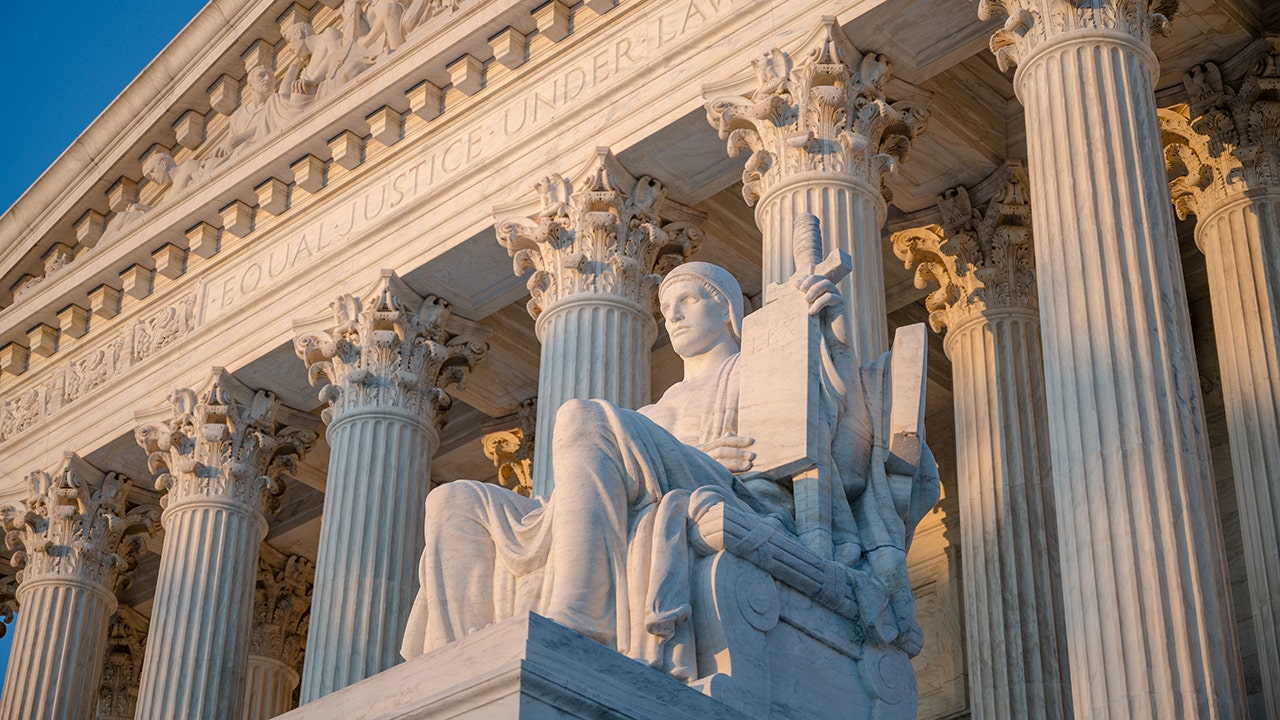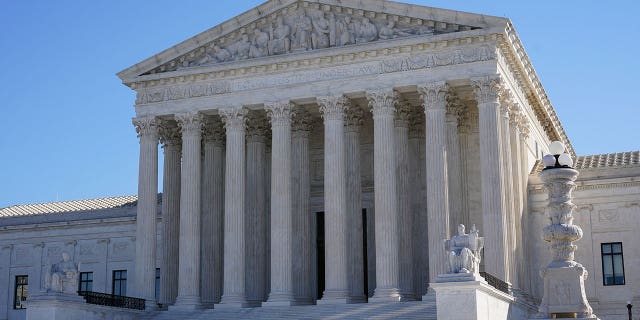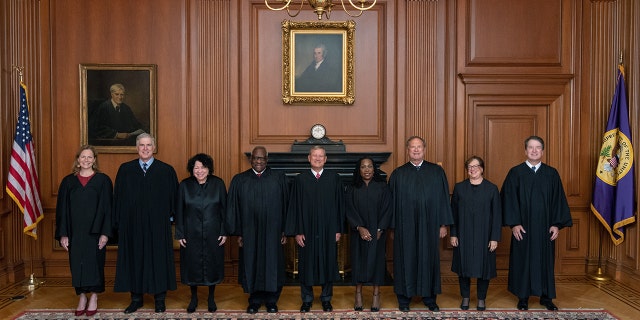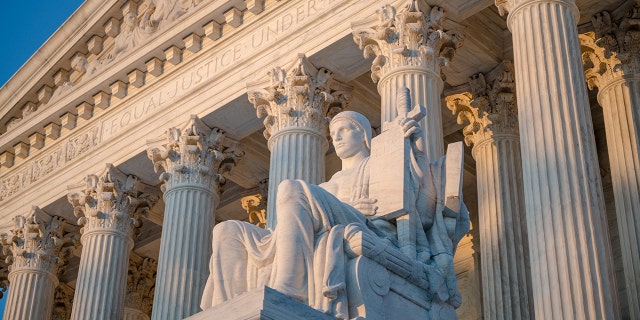Supreme Courtroom on Tuesday to debate alleged racial gerrymandering in Alabama redistricting program
 [ad_1]
[ad_1]
The Supreme Court docket on Tuesday will debate no matter whether the state of Alabama's congressional map illegally shortcomings Black voters.
Adhering to the 2020 census, Alabama produced a new redistricting map for its seven seats in the U.S. Property of Associates. A team of Alabama voters, NAACP and Higher Birmingham Ministries filed a lawsuit, claiming the new maps constrained the influence of Black voters by inserting people today from "the vast majority-Black counties … into the greater part-white Congressional districts in lower plenty of numbers that Black voters have no electoral impact."
They argue the map really should be redrawn so that Alabama has two greater part-Black districts alternatively of just a person, Congressional District 7 (CD 7).
Alabama is set to argue that ought to the lawsuit prevail, the condition will be forced into an unconstitutional follow of prioritizing race in building election regulations — which is what plaintiffs have accused the condition of executing.

Supreme Courtroom of the United States (G3 Box News Photo/Patrick Semansky)
Five MONTHS Later, SUPREME Court Still INVESTIGATING WHO LEAKED THE ABORTION Scenario
The state adds that Alabama’s redistricting approach adopted existing districting lines and tried to make "race-neutral adjustments for small shifts in inhabitants over the previous 10 years but or else keep present district strains."
But plaintiffs say the demographics of the point out necessarily mean Alabama requirements to do far more to give Black voters a probability to elect a Black agent.
"In the twentieth century, Black Alabamians have under no circumstances elected a congressional agent in any district other than the packed the greater part-Black CD 7. And CD 7 has only been a the vast majority-Black district considering that 1992," plaintiffs argue. "As a final result, Black Alabamians have the chance to elect a applicant of option in only 14% of the congressional delegation…despite producing up in excess of 27% of Alabama’s voting age populace."
The difficulty ahead of the courtroom is no matter if Alabama violated Segment 2 of the Voting Rights Act, which prohibits voting techniques or strategies that discriminate on the foundation of race. The decision could aid deliver long-awaited clarity to how the courts need to interpret Area 2 in state redistricting instances.
The situation was very first made a decision by a three-choose panel in an Alabama district court docket in January 2022. The district courtroom ruled, with two Trump-appointed judges, that Alabama’s map probably violated Section 2 and gave the condition a two-7 days deadline to redraw a congressional map that involves two vast majority-black districts.

Justice Ketanji Brown Jackson was sworn in as the 104th associate justice of the Supreme Court of the United States on June 30, 2022. (Collection of the Supreme Courtroom of the United States through Getty Photos)
SUPREME Courtroom KICKS OFF NEW Expression WITH ORAL ARGUMENTS
Alabama filed an emergency appeal to Supreme Court docket Justice Clarence Thomas, asking the courtroom to reverse the decreased court’s selection. The Supreme Court docket granted the state’s request, temporarily permitting the present-day maps to stay in effect even though the two sides make their circumstance to the Supreme Courtroom, which they will do in oral arguments on Oct. 4.
Justice Thomas has beforehand created that Segment 2 "included the federal courts, and indeed the Country, in the company of systematically dividing the state into electoral districts together racial strains — an business of segregating the races into political homelands that amounts, in truth of the matter, to nothing at all shorter of a technique of political apartheid."
America Initial Authorized filed a buddy-of-the-courtroom brief on behalf of Alabama, arguing that, "This Courtroom should do far more than reverse. It need to conclusion our Nation’s decades-very long unconstitutional experiment with court-mandated racial segregation in redistricting."

Supreme Court of the United States
SUMMARIES OF Higher-PROFILE SUPREME Court docket Scenarios
But opponents of Alabama's map say it really is all about diluting the Black vote.
"These new maps weaponize race to undermine the political electricity of communities of color in Alabama," explained Davin Rosborough, senior staff members attorney for the ACLU and co-counsel on the situation. "These maps violate the Structure and run contrary to primary principles of fairness and representative democracy."
Click on In this article TO GET THE G3 Box News Application
Adam White, senior fellow with the American Company Institute, advised G3 Box News Digital that a favorable ruling for Alabama would make it more difficult for folks to challenge state maps.
"If the Supreme Court docket overturns the decreased court’s selections, that will lessen a lot of uncertainty about judicial evaluate of districting for the reason that the people today who want to challenge district traces will have to display a lot clearer proof of discriminatory intent or influence," he reported. "So, judicial overview will be substantially less difficult."
[ad_2] https://g3box.org/news/politics/supreme-courtroom-on-tuesday-to-debate-alleged-racial-gerrymandering-in-alabama-redistricting-program/?feed_id=10224&_unique_id=633bd0dbd2450


0 comments:
Post a Comment